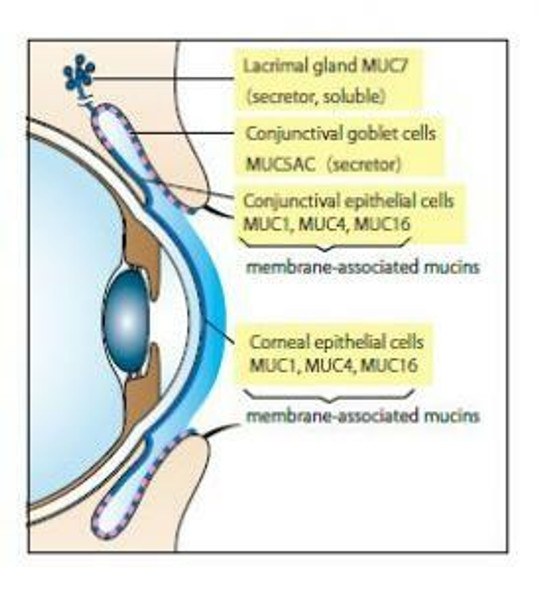Description
Mucins are a family of heavily glycosylated, high molecular weight (1000-10,000 kDa) proteins rich in threonine, serine and hydroxyproline. The Fecal Mucin Assay Kit leverages the reducing end of GalNAc sugar chains frequently linked by post-translational O-glycosylation to these residues to fluorescently quantitate mucin content in feces.
Mucins are a family of heavily glycosylated, high molecular weight (1000-10000 kDa) proteins that are the main components of the mucosa, including in saliva, tears, gastric fluid and enteric fluid. Mucins are involved in gut mucosal barrier function, stopping the translocation of pathogens and toxins into blood vessels beyond the intestinal wall. Heterogeneous sugar chain components of mucins contribute to their diverse structures and binding targets, including specific proteins derived from viruses and bacteria.
Assay principle
Mucins are a family of heavily glycosylated, high molecular weight (1000-10000 kDa) proteins. Mucin domains within their protein cores are rich in threonine, serine and hydroxyproline. The reducing end of GalNAc sugar chains are frequently linked to threonine, serine and hydroxyproline by post-translational O-glycosylation. O-glycosidically linked oligosaccharide chains are β-eliminated by diluted alkali to form reducing ends of sugar chains. Reducing carbohydrates are subsequently fluorescently labeled at high temperature to produce an intensely fluorescent condensate.
Applications
- Intestinal flora research
- Food research
- Agricultural research
- Functional food development






